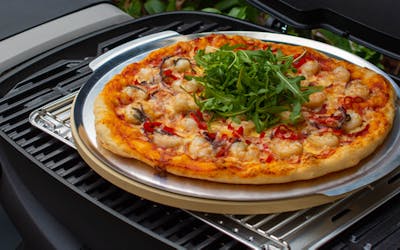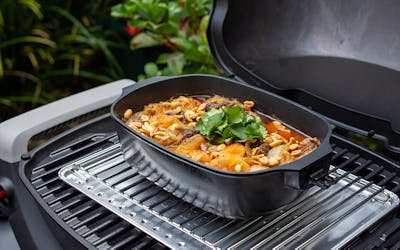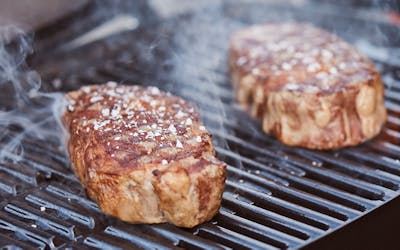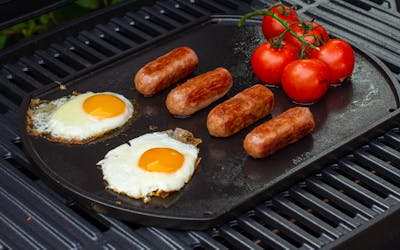EASTER GETAWAY BUNDLES - SHOP NOW
Direct versus Indirect on your Weber Q
There are two distinct cooking methods when using a Weber barbecue. The way we create these cooking methods differs between barbecues, and the fuel types, but the overarching principals remain true across all Weber barbecues designed for covered cooking (lid down cooking).
Direct cooking method
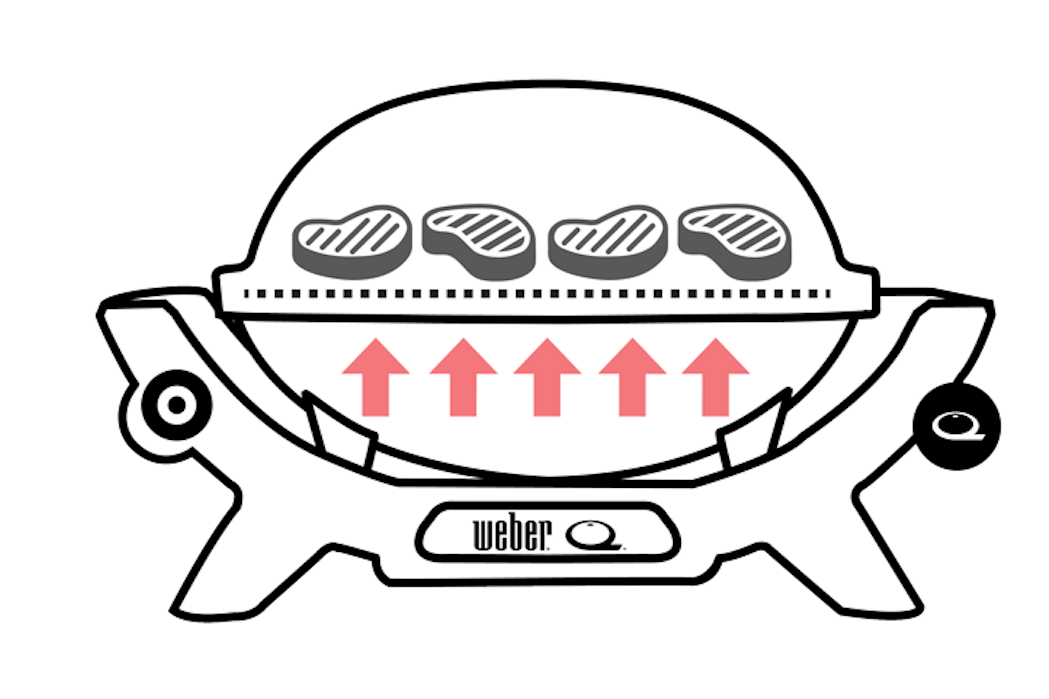
The direct method is used for grilling or searing food on your barbecue. Food is cooked directly above a heat source and directly on the cooking grill. Direct cooking is recommended for foods that will cook through to completion in under 20 minutes, and that will be turned, at least once, during cooking.
There are a couple of different ‘heat sources’ when we talk about the direct cooking method. There is the radiant heat from the flame of the fuel source, and also the conductive heat that is absorbed by the cooking grills, that conducts heat directly onto your food to create caramelised sear marks.
Direct hotplate or accessory cooking:A slight variation on the standard direct cooking method involves the use of a solid hotplate or accessory, such as a frypan or casserole dish. The heat source is largely conductive, with the heat absorbed by the hotplate or accessory and conducted onto your food to create an ‘all over’ caramelisation.
Indirect cooking method
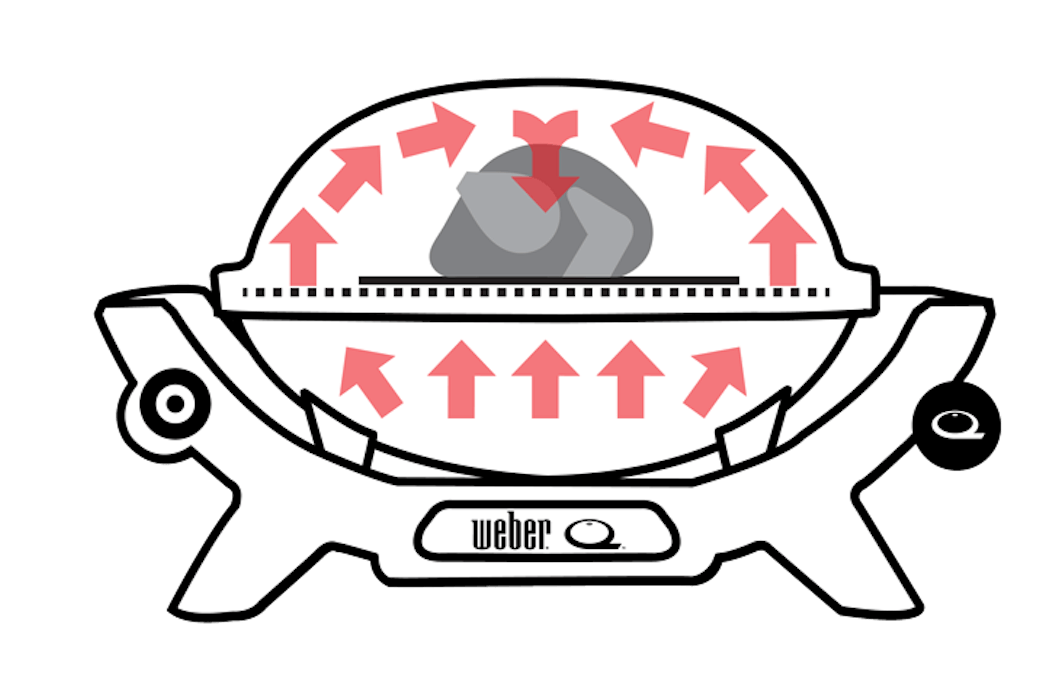
The indirect cooking method is used for roasting, baking and low and slow cooking. Food is not cooked directly over a heat source or directly on the cooking grill above a heat source.
Indirect cooking is recommended for foods that will take longer than 20 minutes to cook to completion, and they generally don’t need to be turned at all during the cooking process.
The indirect cooking method relies predominantly convection heat, where the hot air created by the fuel source circulates around all around your food, cooking it evenly on all sides.
In the case of your Weber Q barbecue, you’ll need a convection tray and trivet, that shields and elevates your food off the grill and creates room for the hot air to circulate all around your food.
In both cooking methods, it is important to pre-heat your barbecue before placing your food into it.

